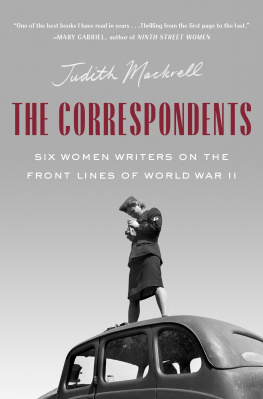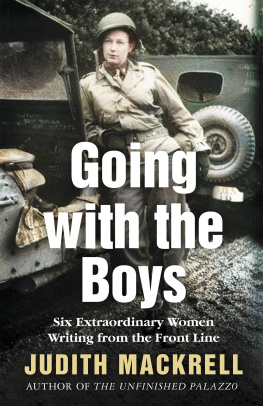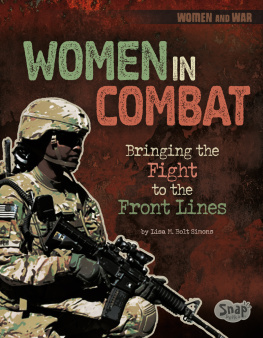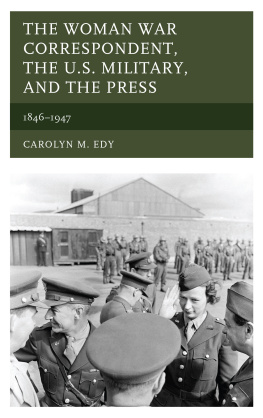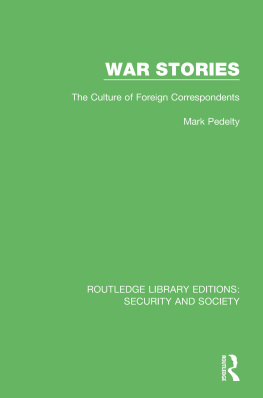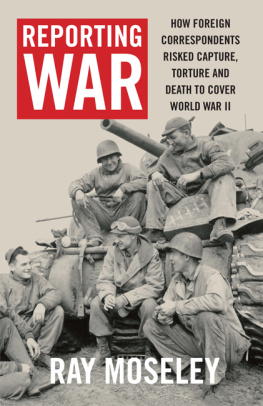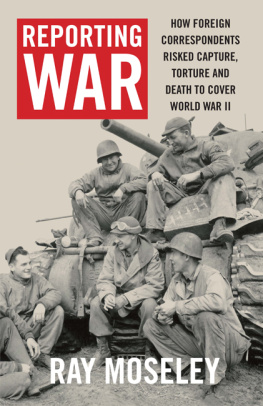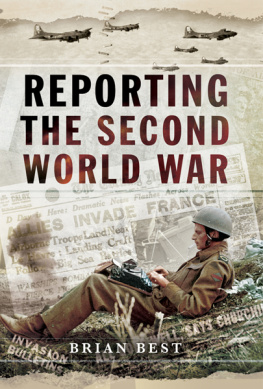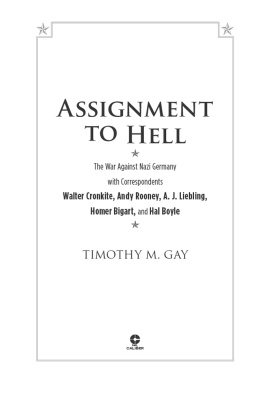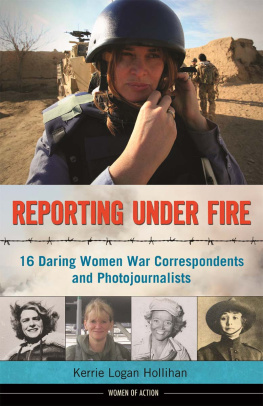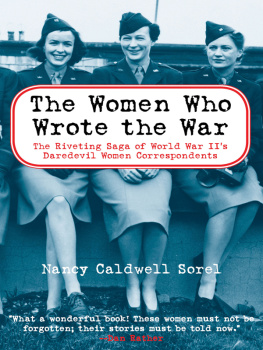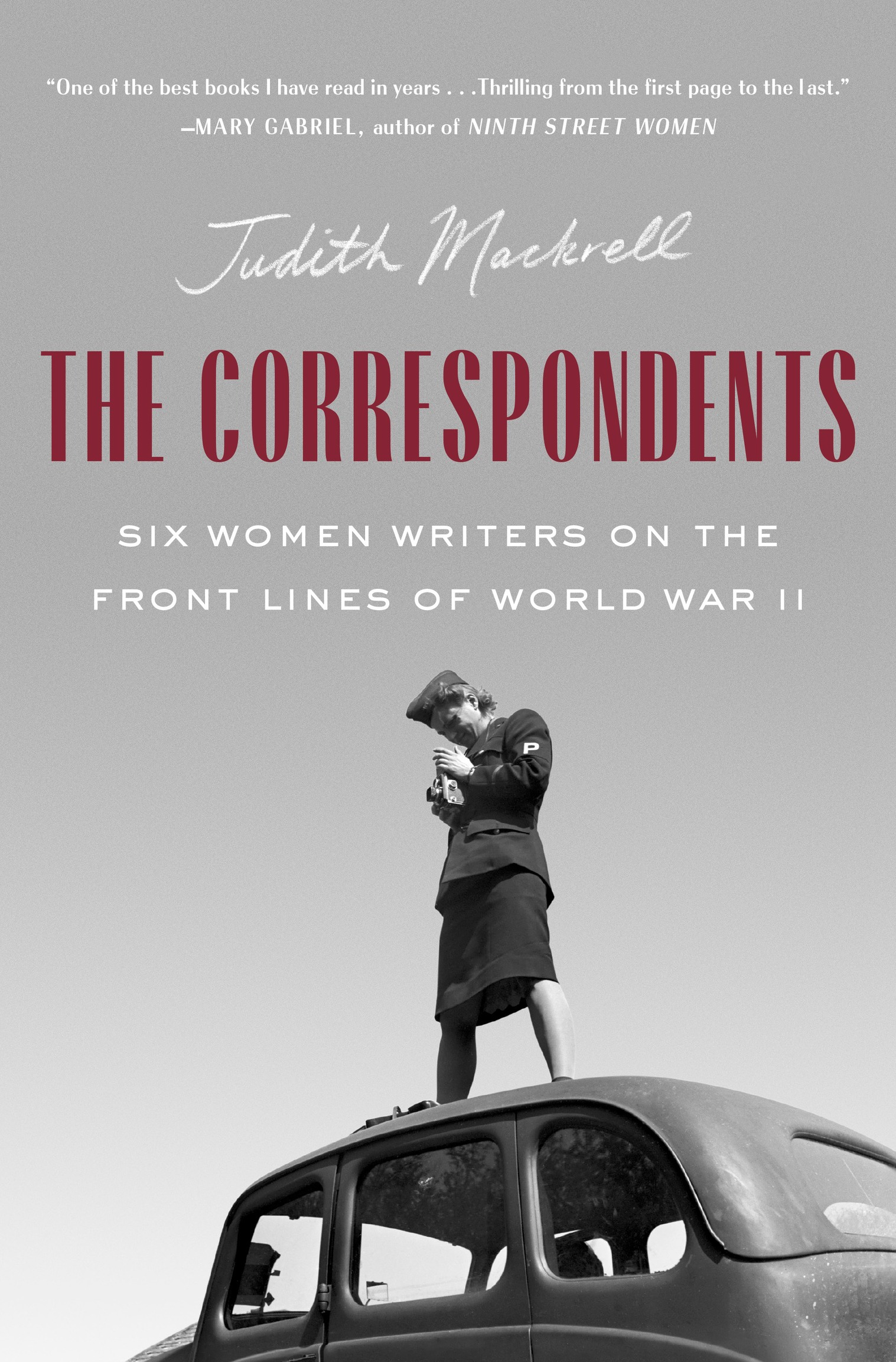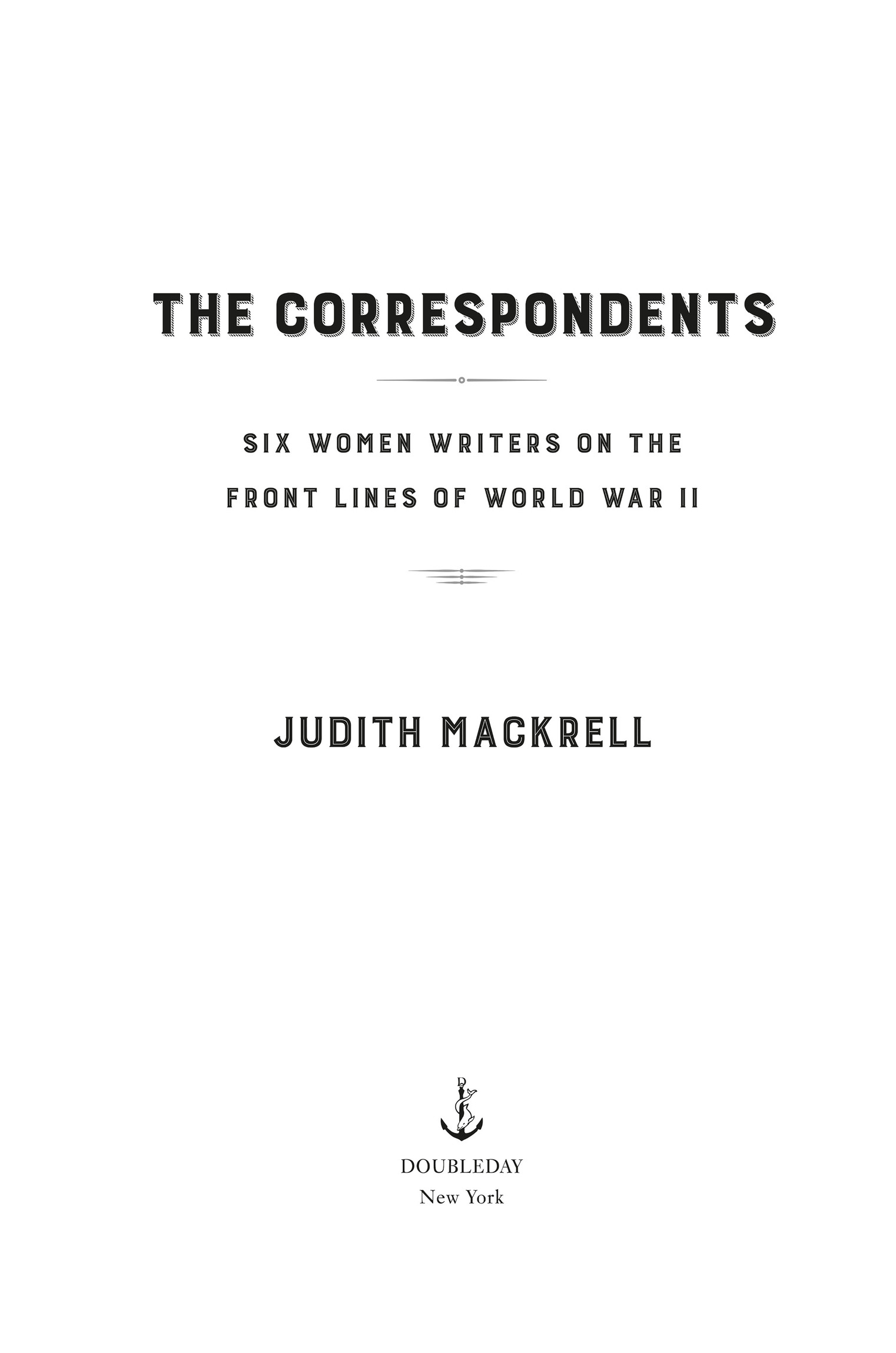Judith Mackrell - The Correspondents: Six Women Writers on the Front Lines of World War II
Here you can read online Judith Mackrell - The Correspondents: Six Women Writers on the Front Lines of World War II full text of the book (entire story) in english for free. Download pdf and epub, get meaning, cover and reviews about this ebook. year: 2021, publisher: Knopf Doubleday Publishing Group, genre: Non-fiction. Description of the work, (preface) as well as reviews are available. Best literature library LitArk.com created for fans of good reading and offers a wide selection of genres:
Romance novel
Science fiction
Adventure
Detective
Science
History
Home and family
Prose
Art
Politics
Computer
Non-fiction
Religion
Business
Children
Humor
Choose a favorite category and find really read worthwhile books. Enjoy immersion in the world of imagination, feel the emotions of the characters or learn something new for yourself, make an fascinating discovery.
- Book:The Correspondents: Six Women Writers on the Front Lines of World War II
- Author:
- Publisher:Knopf Doubleday Publishing Group
- Genre:
- Year:2021
- Rating:5 / 5
- Favourites:Add to favourites
- Your mark:
The Correspondents: Six Women Writers on the Front Lines of World War II: summary, description and annotation
We offer to read an annotation, description, summary or preface (depends on what the author of the book "The Correspondents: Six Women Writers on the Front Lines of World War II" wrote himself). If you haven't found the necessary information about the book — write in the comments, we will try to find it.
Thrilling from the first page to the last. Mary Gabriel, author of Ninth Street Women
Just as women are so often written out of war, so it seems are the female correspondents. Mackrell corrects this omission admirably with stories of six of the bestMackrell has done us all a great service by assembling their own fascinating stories. New York Times Book Review
On the front lines of the Second World War, a contingent of female journalists were bravely waging their own battle. Barred from combat zones and faced with entrenched prejudice and bureaucratic restrictions, these women were forced to fight for the right to work on equal terms with men.
The Correspondents follows six remarkable women as their lives and careers intertwined: Martha Gellhorn, who got the scoop on Ernest Hemingway on D-Day by traveling to Normandy as a stowaway on a Red Cross ship; Lee Miller, who went from being a Vogue cover model to the magazines official war correspondent; Sigrid Schultz, who hid her Jewish identity and risked her life by reporting on the Nazi regime; Virginia Cowles, a society girl columnist turned combat reporter; Clare Hollingworth, the first English journalist to break the news of World War II; and Helen Kirkpatrick, the first woman to report from an Allied war zone with equal privileges to men.
From chasing down sources and narrowly dodging gunfire to conducting tumultuous love affairs and socializing with luminaries like Eleanor Roosevelt, Picasso, and Man Ray, these six women are captured in all their complexity. With her gripping, intimate, and nuanced portrait, Judith Mackrell celebrates these courageous reporters who risked their lives for the scoop.
Judith Mackrell: author's other books
Who wrote The Correspondents: Six Women Writers on the Front Lines of World War II? Find out the surname, the name of the author of the book and a list of all author's works by series.

